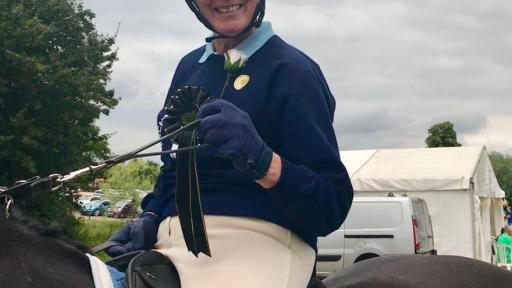Hippotherapy is a form of physiotherapy that uses the motion of the walking horse to provide therapeutic movement to the rider.
Sessions are under the direction of a physiotherapist specifically trained in this method of treatment. The horse is led by a handler and the person receiving treatment is not actively controlling the horse. Instead they may carry out a series of exercises or just gain benefit from the movement of the horse. The walking motion of the horse mimics the human walking gait, which means that the rider has to make small adjustments to their posture, exercising their core muscles.
Hippotherapy can help with strengthening and stretching muscles and with balance. It has been used for a variety of conditions, including, MS, ADHD in children, cerebral palsy and dementia, and studies generally show a significant but mild improvement in spasticity, posture, gait and quality of life. The warmth of the horse may be relaxing to the muscles, and people who have tried hippotherapy report enjoying the experience and feeling uplifted and well exercised afterwards.
Therapeutic horse riding involves teaching riding skills to people with disabilities. The rider will still get therapeutic benefits, but will be more actively riding the horse. This can improve confidence and self-esteem as well as the physical benefits of ordinary hippotherapy.
